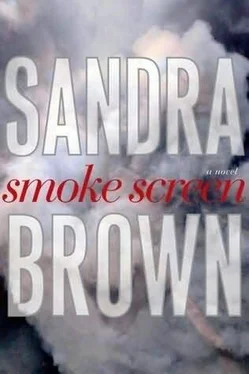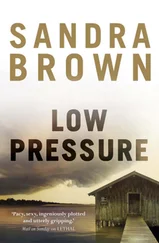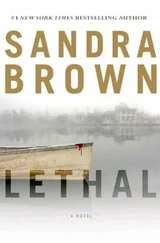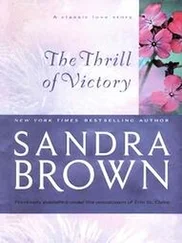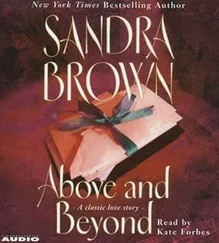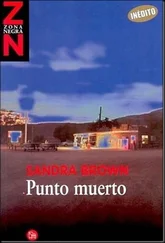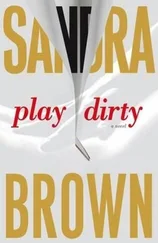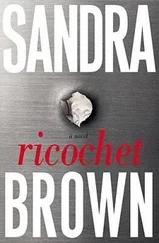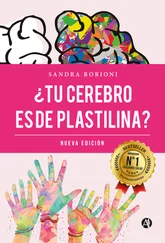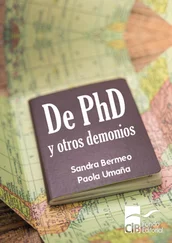Cobb didn’t know Britt Shelley personally, only professionally. She’d been a fledgling reporter during the election that put him in this office, and she’d advanced just as he had. Often she covered the state capitol for the Charleston station, and he’d seen her on-air work there.
She was a tough but fair interviewer, far superior to the station’s other reporters, better than the station’s news operation altogether, and he’d often wondered why she hadn’t been snatched up by a larger TV market.
He’d also wondered if she purposefully downplayed her attractiveness so it wouldn’t be a distraction to the story or a drawback to her credibility. When a hurricane had been threatening Charleston last year, she’d covered it live, dressed in a jacket with the hood drawstring tied tightly beneath her chin, her face washed clean of makeup by the torrential rain. Hardly glamorous.
She was no prima donna and no pushover. She certainly didn’t look like one as she faced an audience of her colleagues and stated she didn’t remember anything beyond going into Jay Burgess’s town house. Then she alleged that she’d been given a date rape drug.
She was articulate, earnest, believable. But if her urinalysis came back negative, her attorney would have a hell of a hard time proving that she’d ingested a drug that would cause total memory loss.
The lawyer seemed to realize that. He looked uneasy and uncertain about his client’s claim. He looked constipated. He appeared to be the kind of timid defender who actually helped prosecutors get convictions.
She, on the other hand, was confidence personified. Of course, she was adroit at playing to a camera. Cobb had experience with that himself. She knew how to evoke a self-serving emotion from her audience. He could relate to that, too.
The press conference ended with her saying that she wanted to learn the cause of Jay Burgess’s death. She said it with enough conviction that, despite his skeptical nature, Cobb Fordyce believed her.
He was about to switch off the TV when the local news station went live with a follow-up story. The Charleston PD public information officer had been asked if Britt Shelley was under arrest. “Absolutely not,” he replied. “Up to this point, there’s been no evidence of any wrongdoing.”
Standard-issue statement, Cobb thought.
“Jay Burgess died in his sleep. That’s all we know at this time.”
Cobb doubted that. That wasn’t all they knew. They had something. Maybe nothing more than a hunch. But something had spooked Britt Shelley, or she wouldn’t have made a preemptive strike by calling the press conference to claim friendship with Jay Burgess and express her deep regret over his untimely death-in effect to profess her innocence.
The CPD were fools for letting her get the jump on them. They should have kept her under wraps, or issued a gag order. That was a giant blunder on their part, letting her use her media advantage to state her defense before it even became a criminal case.
Again he was about to switch off the set when a local reporter was shown standing outside the state capitol. If Cobb looked out his office window, he’d probably see the news vans parked along the boulevard.
This was exactly what he’d dreaded and had hoped to avoid.
“We’ve tried to contact Attorney General Cobb Fordyce this afternoon for a statement on the unexplained death of Jay Burgess, but Mr. Fordyce was unavailable for comment. As many of you may recall, Fordyce and Burgess were two of the four men who valiantly saved lives, at tremendous risk to their own, during the Charleston police station fire five years ago.”
Cut to file footage of the building in full blaze, surrounded by fire trucks spraying water on an inferno that had burned out of control. Then, appearing on the screen was a photo of himself, Jay Burgess, Patrick Wickham, and George McGowan, oxygen masks strapped over their smoke-stained faces, their clothing charred, hair singed, heads bowed, and shoulders slumped in abject fatigue.
That picture had made the front page of The New York Times in addition to every newspaper in the South. National magazines had printed it with stories that extolled their bravery. The photographer had been nominated for a Pulitzer.
“Attorney General Fordyce was working for the Charleston County DA ’s office at that time,” the reporter explained when they came back to him on camera. “The other three men were police officers. Jay Burgess is the second hero of that day to die. Patrick Wickham, tragically, was killed in the line of duty barely a year following the fire.
“Yesterday, I spoke with George McGowan, now a businessman in Charleston. I asked him to comment on his fellow hero’s death. He declined to appear on camera but told me that Jay Burgess was the best friend a man could ever hope to have and that he will be missed by everyone who knew him.”
The reporter then pitched it back to the anchors in the studio, who commented on the poignant and dramatic elements of the story. The segment ended on the legendary photograph, the studio camera going in for a close-up on Jay Burgess’s face, where there was a reflection of the flames in his eyes and tear tracks in the soot and smoke stains on his cheeks.
Cobb clicked the remote, and the image blinked out. He loathed that damn photograph. Because of the boost it had given his career, people expected a framed copy of it to be prominently displayed in his office. And that was precisely why he didn’t have one.
He left his desk chair and moved to the window. As expected, news vans were lined up along the curb; reporters from various stations across the state were doing stand-ups with the capitol serving as backdrop.
The police station fire. It was like a recurring nightmare. Every so often it would come around again. This time, Jay Burgess’s death had resurrected interest in it. Cobb wished for nothing more than that it would never be mentioned again. He wanted it kept out of the media, which seemed to relish replaying footage, retelling the story, showing that damn immortalized picture. He wished for voters not to be reminded that, were it not for that fire, he might not occupy this office.
Most of all, he wished not to be reminded of that himself.
FOLLOWING THE PRESS CONFERENCE, BRITT SPENT THE remainder of the day at home.
She fielded telephone calls. Some were from acquaintances, others from reporters. All wanted the lowdown, the nitty-gritty on her night with Jay Burgess. Her acquaintances were only slightly more subtle in their approach than the brash reporters. They expressed shock over her situation and outrage that she was being placed on the defensive. But behind their commiserations she sensed a raging curiosity to know what had really happened. Weary of repeating herself, she stopped answering the phone.
The only person she wished would call was Bill Alexander, telling her that her urinalysis had revealed traces of Rohypnol, one of the very effective date rape drugs, which sometimes remained in the individual’s system for as long as seventy-two hours.
When the anticipated call did come, that wasn’t his message. “I’m sorry,” he said, cutting straight to the chase. “The urinalysis was negative for any of the suspected substances.”
Curled up in the corner of her sofa, cell phone in hand, she expelled a long breath. “I didn’t really expect otherwise. They act quickly, hit hard, and soon disappear. That’s the beauty of them for the son of a bitch who puts one in a woman’s drink.”
“Yes, well…”
He went on to say that he’d received a harsh dressing-down from the chief of police, as well as the district attorney’s office, for conducting the press conference. “They said I might have cleared it with them first. I reminded them that you are not a suspect of a crime, that, indeed, it hasn’t yet been determined that a crime was committed, and that you were exercising your First Amendment right to free speech.”
Читать дальше
